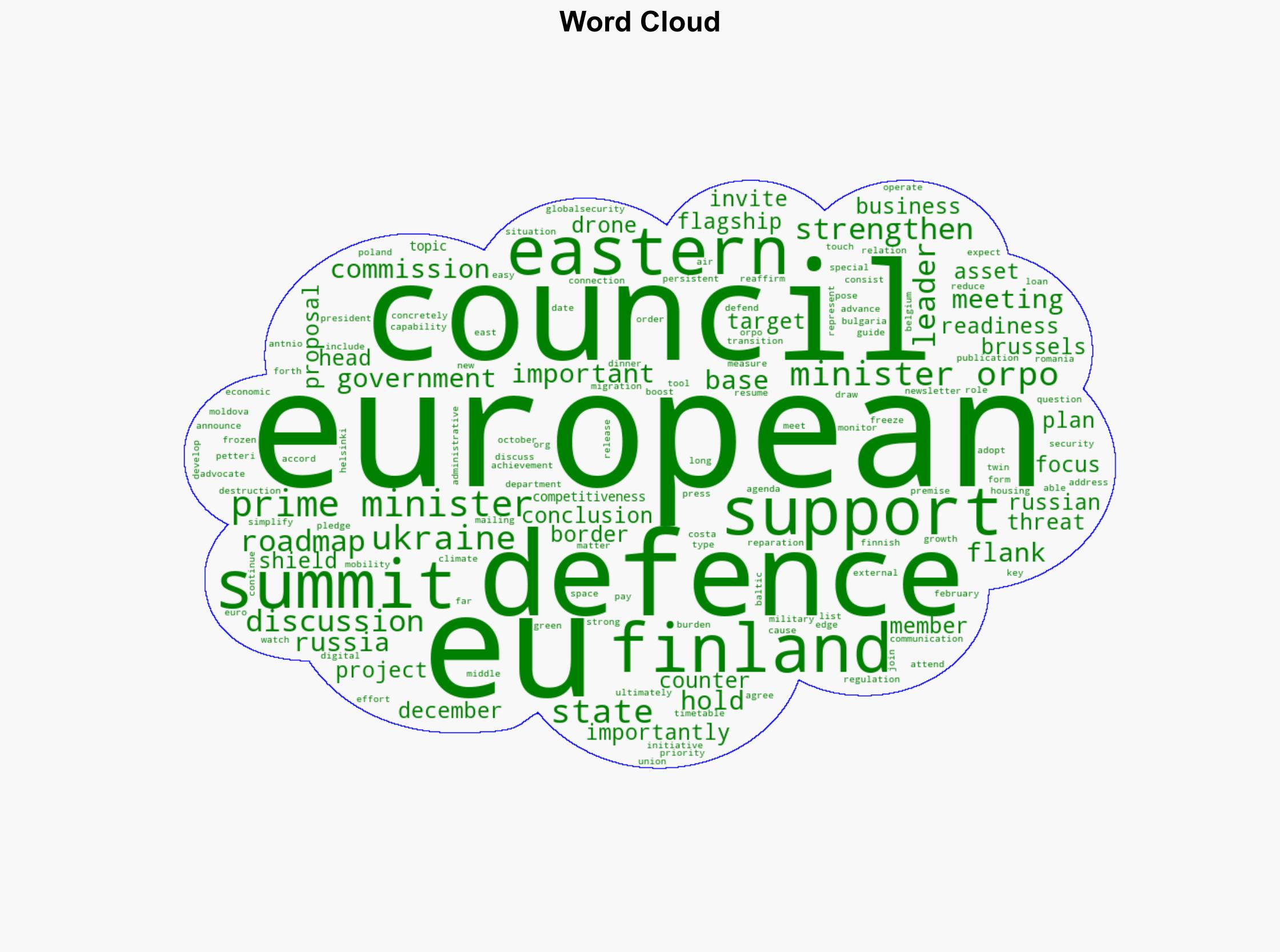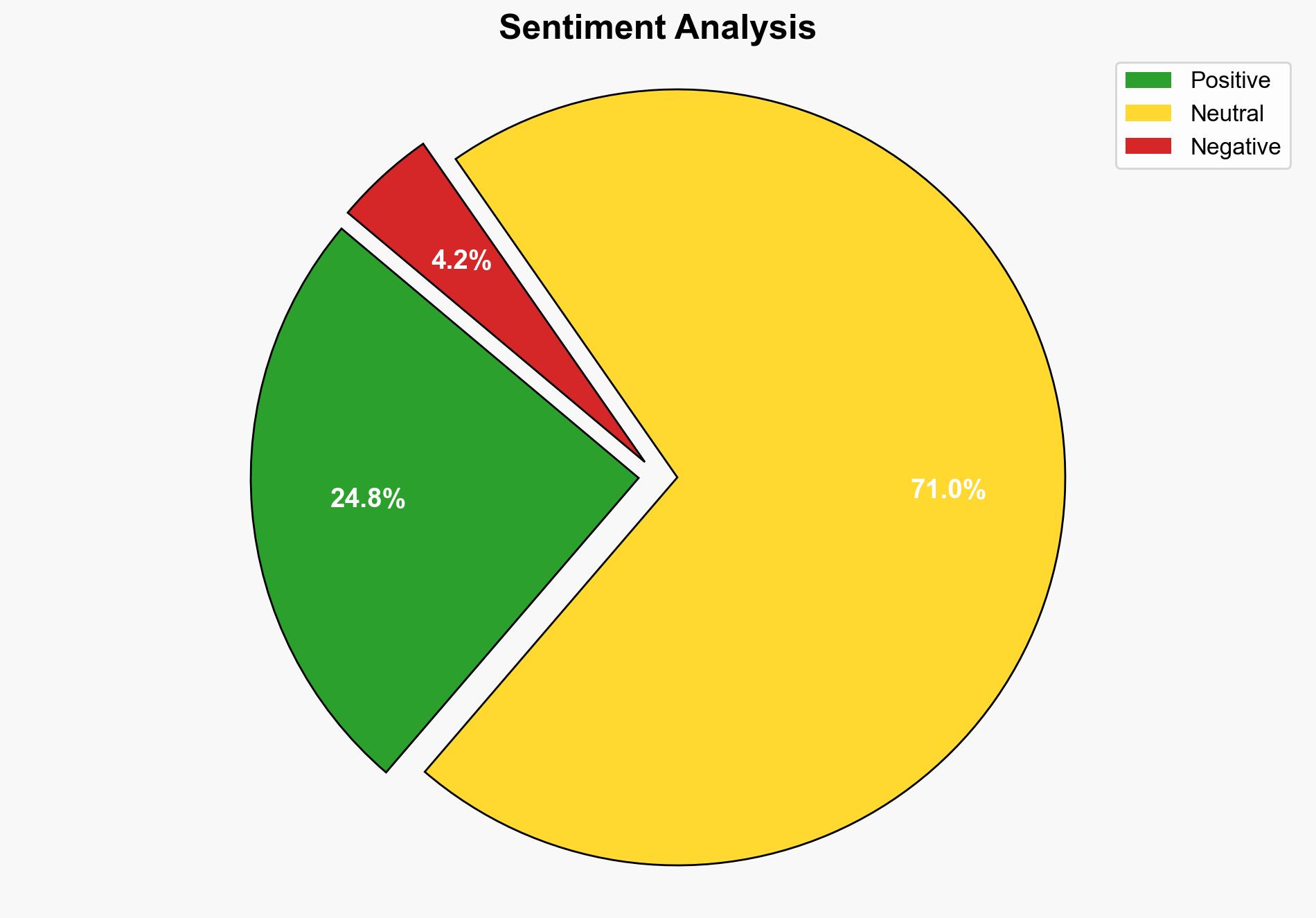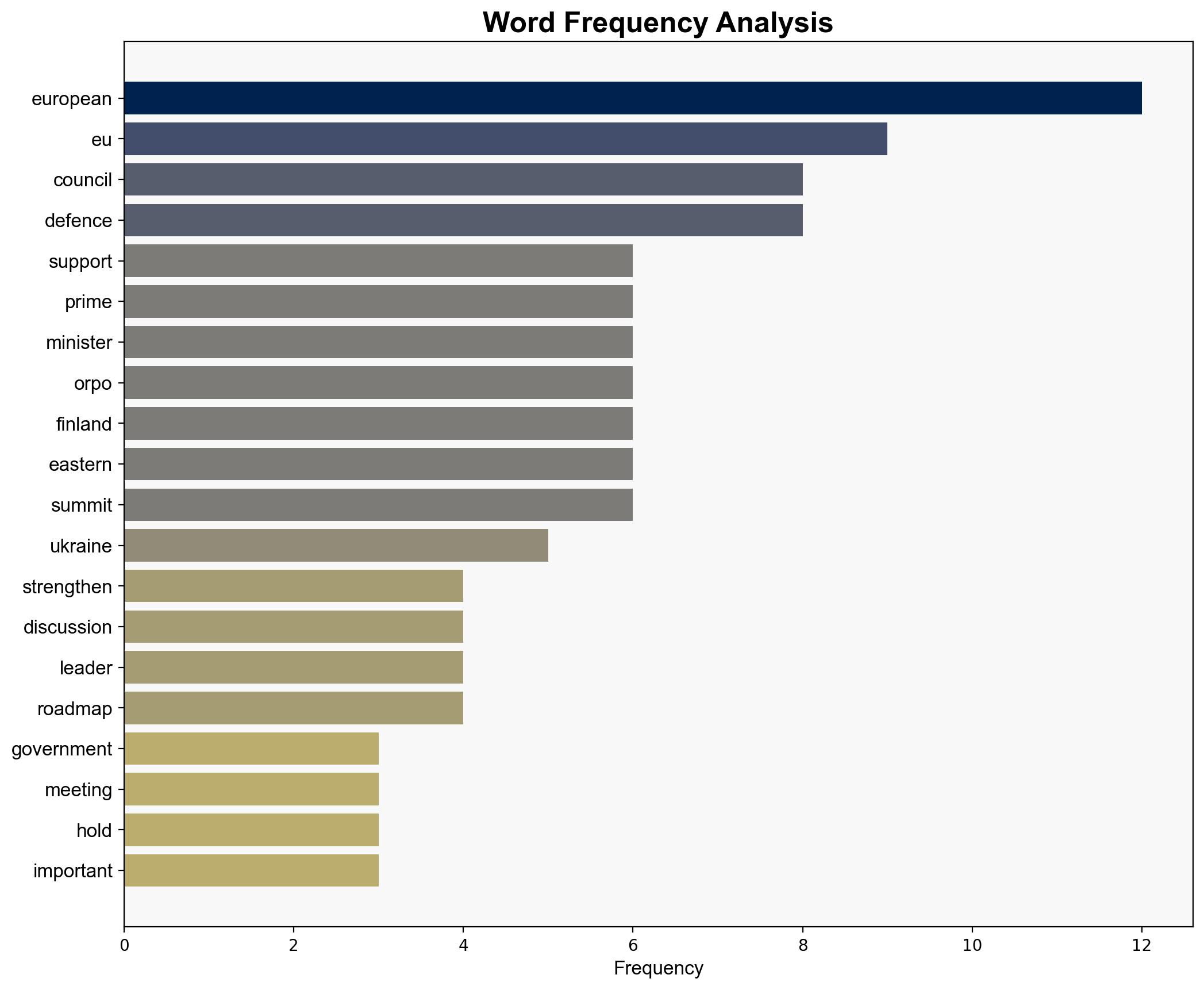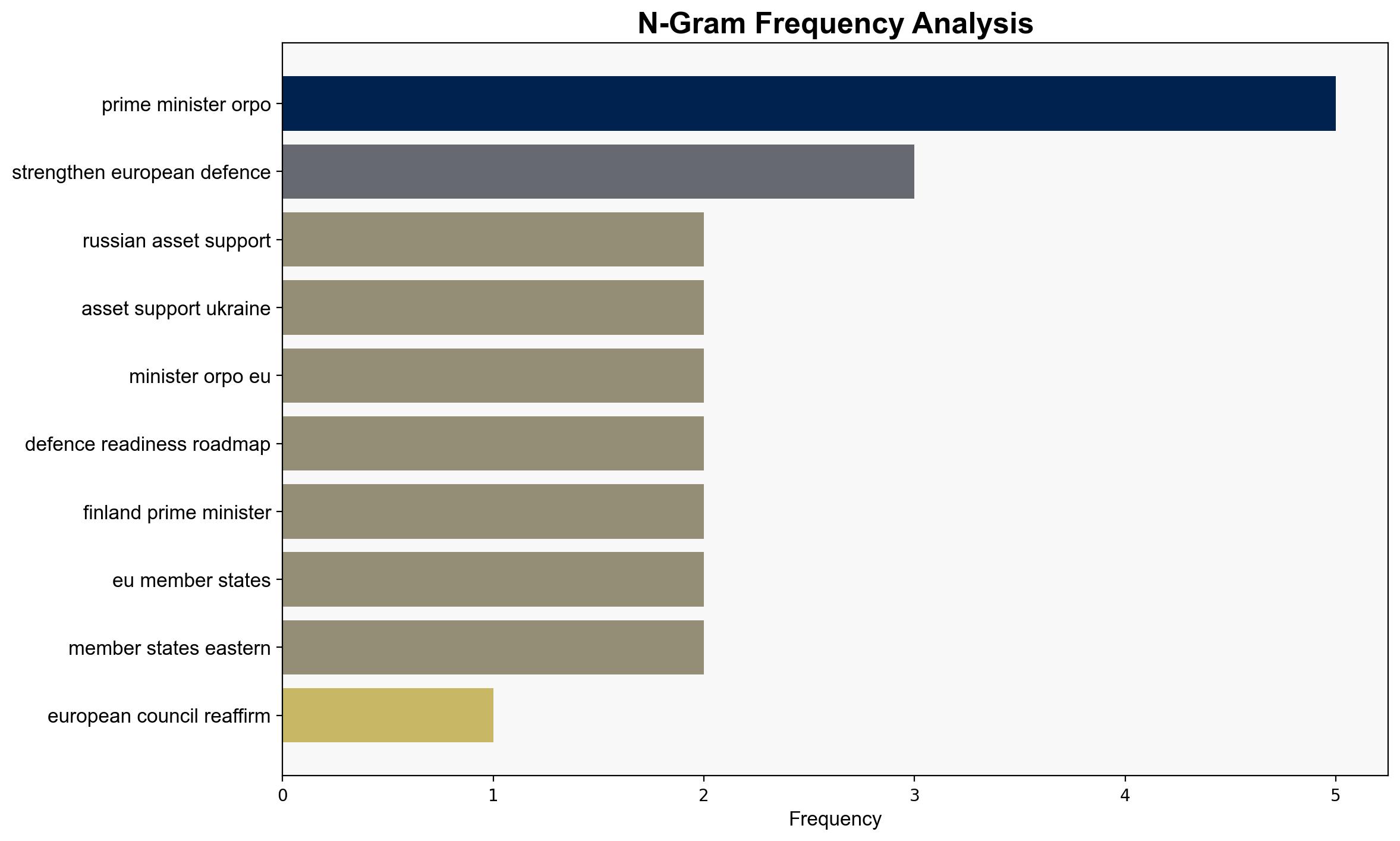European Council reaffirms support for strengthening European defence – Globalsecurity.org
Published on: 2025-10-25
Intelligence Report: European Council reaffirms support for strengthening European defence – Globalsecurity.org
1. BLUF (Bottom Line Up Front)
The European Council’s reaffirmation of strengthening European defense is primarily driven by the perceived persistent threat from Russia. The most supported hypothesis is that the EU aims to enhance its collective defense capabilities to deter Russian aggression, particularly on its eastern flank. Confidence level: High. Recommended action: The EU should expedite the implementation of the defense readiness roadmap and enhance collaboration with NATO to ensure comprehensive security coverage.
2. Competing Hypotheses
1. **Hypothesis A**: The European Council’s actions are primarily aimed at countering the persistent threat from Russia, focusing on strengthening defense capabilities on the eastern flank and enhancing military mobility.
2. **Hypothesis B**: The European Council’s initiatives are driven by broader strategic goals, including enhancing EU’s global defense posture and reducing reliance on NATO, using the Russian threat as a catalyst to unify member states under a common defense agenda.
Using the Analysis of Competing Hypotheses (ACH) 2.0, Hypothesis A is better supported due to the specific focus on the eastern flank and the direct mention of countering Russian threats. Hypothesis B lacks direct evidence in the source text and relies more on strategic extrapolation.
3. Key Assumptions and Red Flags
– **Assumptions**: It is assumed that Russia will continue to pose a significant threat, justifying the EU’s defense initiatives. Another assumption is that EU member states are willing to allocate necessary resources for defense enhancement.
– **Red Flags**: The lack of detailed financial commitments and timelines for the defense projects could indicate potential delays or disagreements among member states. There is also an assumption that all EU members share the same level of threat perception regarding Russia.
4. Implications and Strategic Risks
The focus on strengthening defense capabilities could lead to an arms race with Russia, escalating regional tensions. Economically, increased defense spending may strain EU budgets, potentially impacting social programs. Geopolitically, this move might push Russia to strengthen alliances with non-EU countries, altering the balance of power. Cybersecurity risks may also increase as Russia could retaliate through cyber means.
5. Recommendations and Outlook
- Accelerate the implementation of the defense readiness roadmap, ensuring clear timelines and financial commitments.
- Enhance intelligence-sharing mechanisms within the EU and with NATO to improve threat detection and response capabilities.
- Scenario-based Projections:
- Best Case: Successful implementation of defense initiatives deters Russian aggression, stabilizing the region.
- Worst Case: Increased militarization leads to heightened tensions and potential conflict on the EU’s eastern borders.
- Most Likely: Gradual enhancement of defense capabilities with intermittent diplomatic tensions with Russia.
6. Key Individuals and Entities
– Petteri Orpo
– European Council
– European Commission
7. Thematic Tags
national security threats, cybersecurity, counter-terrorism, regional focus




